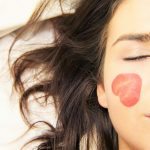Common problems with hair
The most common problems with hair. And how to deal with them?
Nowadays, our hair is exposed to more harm than ever. On a daily basis we use products, cosmetics and treatments that are potentially destructive. Indeed, we have better quality hair dyes and we pay more attention to grooming and hair care, but this is still not enough. And more often we outweigh the good treatments with the bad ones. So, it’s no surprise that at some point, problems with hair will emerge.
Environmental pollution and chlorinated water
Without doubt, environmental pollution has great negative effect on our hair. We live in a time when new factories are constantly being built, and on average almost everyone has a car or two! And although much is said about ecology, economic living, and the fight against smog – the problem is still persistent, and so huge in vast cities around the world, that it’s difficult to take control. Meanwhile, environmental pollution not only has potentially negative impact on our well-being, but also our physical features, with our skin and hear suffering the most. Chlorinated water doesn’t help either, and in turn makes our hair even more dry and brittle.
Ironically, hair problems also result from the wide availability of chemicals. On the one hand, we have better and safer shampoos, conditioners, masks, dyes etc. and on the other, we have an unrestricted access to harmful substances, and if we’re unknowledgeable in this field, then we can potentially choose the wrong products. Many women also decide to buy the cheapest hair products, or dyes, and colour their hair at home. The effects can always vary, but it’s often the case that experimenting with unknown/cheap products leads to inevitable despair.
Our lifestyle may also affect the condition of our hair. Just think of it that way; everyone’s always in a hurry, most people in modern times live in an age of swiftness. So all our daily activities also increase in speed; we wash, dry, clothe ourselves at a quicker rate. We forget about the use of nutritious foods, we taint our diet with fast food, and avoid cosmetics that protect our hair from effects of high temperatures. Every day we dry our hair with a dryer, because it’s fast and efficient. If you additionally use hair curlers or straighteners especially on unwashed hair, then hair problems are basically guaranteed.
The most common problems with hair:
Excessive hair loss
The most common problems with hair certainly relate to their loss. Both men and women can suffer with balding, thin hair, receding hairlines or excessive shedding. Although the problem is often associated with men who, with age tend to go bald due to their hormones. Increasing receding hair lines or bald patches on the head are certainly aesthetic problems, but those can also lead to other underlining mental issues.
Matted hair, with no shine
Matted strands are primarily a problem suffered by long-haired women. Even if the hair is soft and shiny at the base, the further away they go, the worse they tend to get. Lack of shine is the most common complaint made by owners of very curly hair. If neglected, curly strands won’t be lush, and instead create feeling and impression of ‘straw’ head.
Damaged hair
You need take care of your hair, especially if it’s long. If they are often dyed and subjected to treatments that involve high temperatures, their gradual destruction can be noticed in no time. The hair breaks, crumbles, it’s dry and difficult to comb. These problems are minor, compared to baldness for example, but they can be vexing and distressing.
Greasy hair and dandruff
Excessive production dandruff is not so much a hair problem, but rather of the skin. Sometimes the problem can be eliminated by changing care habits and using specialised cosmetics on the scalp, other times it is necessary to use expert advice of the dermatologist or trichologist. Greasy hair is also caused by skin problems – in other words our hair can grease very often if our sweat glands produce excessive amounts of sweat, or if we wash our hair too often. So once again, a change of habits, cosmetics or seeking professional advice may be the way out.
 Previous Post
Previous Post Next Post
Next Post



